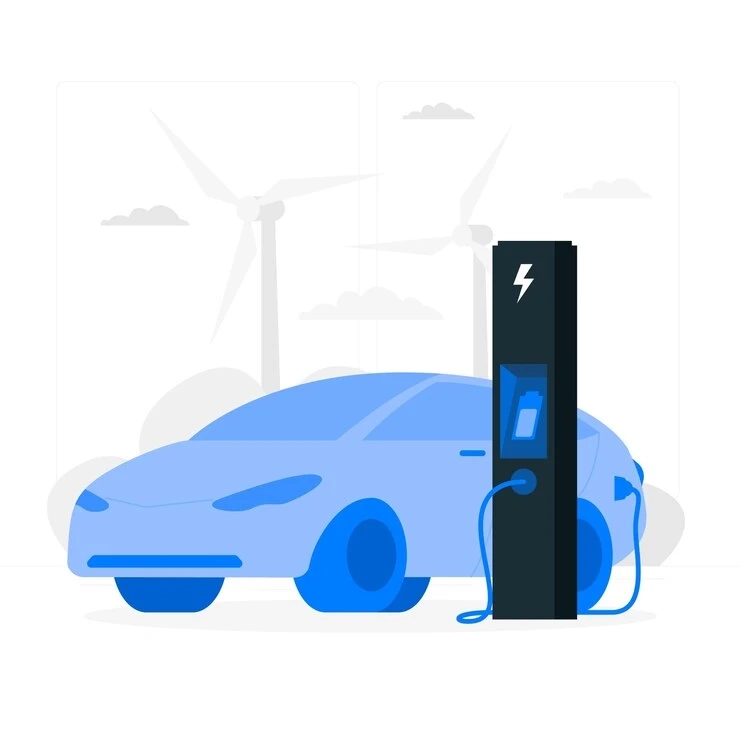As electric vehicles become more mainstream, the demand for efficient and reliable EV charging stations continues to rise. One key decision EV owners must make is whether to rely on public EV charging stations or invest in a private setup. Each option brings its own advantages, limitations, and cost implications.
This blog by Aevirt walks you through the differences between public and private charging solutions, helping you navigate what works best for your driving habits, location, and lifestyle. Let’s break down the details.
What Is an EV Charging Station?
An EV charging station supplies electricity to recharge electric vehicles. Depending on the station type, power output can vary—ranging from slow Level 1 chargers to fast Level 3 DC chargers. These stations are located in a wide range of settings—from residential garages to commercial parking lots.
There are two main types:
- Public EV Charging Stations: Installed in public areas like malls, gas stations, highways, and office buildings.
- Private EV Charging Stations: Installed at a home or a specific private location, accessible only to the owner or a closed group.
Let’s go deeper into the pros, cons, and overall experience of both setups.
Public EV Charging Stations
Public EV charging stations are provided for public use and are often owned by businesses, municipalities, or third-party networks. These chargers are accessible to anyone with an EV and may require a payment card or app.
Pros of Public Charging
Widespread Availability
Public charging infrastructure is expanding rapidly across the U.S. Thanks to federal and state investments, you can now spot EV charging stations at rest stops, downtown streets, and grocery stores. Aevirt's public charging network plays a role in this growing accessibility.
Fast Charging Options
Many public chargers are Level 3 DC Fast Chargers. These can deliver 60 to 80 miles of range in just 20 minutes—ideal for long trips or quick top-ups.
No Upfront Cost
You don’t need to install anything. Just plug in and charge when you're on the go.
Cons of Public Charging
Potential Wait Times
As more EVs hit the road, it’s common to see public chargers occupied—especially during peak hours. Waiting to charge can delay your schedule.
Higher Cost Per Charge
Public charging typically costs more than home charging. Fees can be per minute, per kWh, or a flat session rate.
Inconsistent Experience
Different charging networks have different apps, cards, and rules. One station might work with your vehicle’s app, while another might not. That’s where platforms like Aevirt strive to standardize and simplify the experience.
Private EV Charging Stations
Private charging offers convenience and control for EV owners. Typically located in your home garage or driveway, these units can be Level 1 or upgraded to a faster Level 2 system.
Pros of Private Charging
Convenient Access
Your EV charging station is always available. Plug in overnight and your vehicle is ready by morning.
Lower Charging Costs
Home electricity rates are usually cheaper than public station fees. Some utilities even offer special EV charging plans with off-peak discounts.
Custom Charging Schedules
Many home units can be programmed to charge during low-rate hours. This allows you to manage your energy use efficiently. Aevirt’s smart charging systems offer app control and energy insights to optimize your setup.
Cons of Private Charging
Installation Costs
Setting up a private EV charging station requires electrical work, especially for Level 2 systems. The upfront cost can range from $500 to $2,000 or more depending on the installation needs.
Location-Specific
You can only use your home charger at home. This makes it less helpful for long trips unless combined with public charging.
Limited for Multi-Unit Dwellings
Apartment or condo residents may face restrictions or require HOA approval to install a private charger. Some property owners work with companies like Aevirt to create shared private charging systems for tenants.
When to Choose Public EV Charging Stations
Public EV charging stations make sense if:
- You drive long distances frequently and need fast top-ups.
- You live in a multi-unit building with no private charging options.
- You use your EV for rideshare or delivery services and need flexibility.
Using public charging doesn’t mean sacrificing convenience. Services like Aevirt offer easy-to-locate public chargers and seamless payment through a single app interface.
When Private Charging is the Right Fit
A private EV charging station is ideal if:
- You own a single-family home with a garage or driveway.
- Your daily commute is within your EV’s range.
- You want to save on energy costs over time.
- You prefer a consistent charging routine.
Aevirt supports homeowners with easy installation options, energy-efficient hardware, and mobile control to track usage and schedule charging.
Hybrid Approach: Using Both Public and Private Charging
Many EV owners blend the use of both. They charge at home during the week and rely on public EV charging stations when traveling or running errands. This hybrid method offers the best of both worlds—cost savings and flexibility.
For example, an Aevirt customer might install a Level 2 charger at home, and also have access to Aevirt's network of public chargers while on the road.
Charging Speeds and Types
Level 1
- Voltage: 120V (standard outlet)
- Charging Speed: 2 to 5 miles per hour
- Best For: Overnight charging and light users
Level 2
- Voltage: 240V
- Charging Speed: 10 to 60 miles per hour
- Best For: Daily use, quick overnight charging
Level 3 / DC Fast Charging
- Voltage: 400V to 900V
- Charging Speed: 60 to 100+ miles in 20 minutes
- Best For: Road trips and rapid top-ups
Private stations typically range from Level 1 to Level 2. Public EV charging stations often include DC fast chargers.
Maintenance and Safety
Private chargers require routine checks to ensure cables and connectors remain intact. Public chargers are maintained by the provider, such as Aevirt, which regularly services units and performs diagnostics to maintain uptime and safety.
Regardless of type, all EV charging stations should be installed and maintained according to national safety standards and local codes.
EV Charging Station Costs
Public Charging Costs
- Per kWh: $0.25 to $0.50
- Flat Fee: $5 to $15 per session (varies by location/provider)
Private Charging Costs
- Installation: $500 to $2,000+
- Ongoing electricity: $0.10 to $0.20 per kWh (depending on state)
Though upfront costs may be higher for private setups, long-term savings add up—especially for daily drivers.
Government Incentives and Rebates
Local and federal programs can offset installation costs for private stations. Utility companies sometimes offer rebates for Level 2 installations at home.
Public charging infrastructure also benefits from federal funding through initiatives aimed at reducing carbon emissions and supporting EV adoption. Providers like Aevirt work with local governments to expand access in underserved areas.
Conclusion
Choosing between public and private EV charging stations depends on your individual needs, driving habits, and home setup. Private stations offer consistent access and long-term savings, while public chargers provide flexibility and fast top-ups.
Many drivers use a combination of both to stay powered wherever they go. With brands like Aevirt making both options more user-friendly, reliable charging has never been more accessible.
FAQs
How much does it cost to install a private EV charging station?
Installation typically ranges from $500 to $2,000, depending on the location and electrical setup.
Are public charging stations safe to use?
Yes, public EV charging stations are built with safety in mind and maintained by professional networks like Aevirt.
Can I use my home charger for different EV models?
Most Level 2 chargers are universal and work with all EVs using a standard connector (except Tesla, which may require an adapter).
How do I locate a public EV charging station?
Apps from providers like Aevirt help you locate available chargers nearby, track availability, and pay with ease.
Is it worth installing a private charger if I only drive a few miles daily?
Yes, a home charger can offer convenience and help reduce long-term charging costs even for short commutes.


